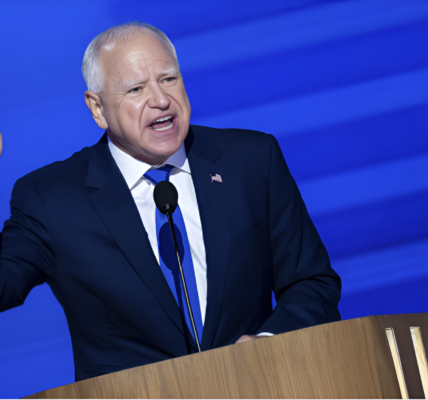
As the holiday season unfolds, a grim reality confronts many U.S. civil servants: Should they stay in their positions and endure a president who disdains their work and threatens their job security, or leave before they’re forced out? For some, the prospect of sticking around under President-elect Donald Trump’s promised purge feels unbearable. The temptation to escape the storm and try one’s luck elsewhere is strong.
But to those who serve in the federal workforce, I implore you: stay. Your decision isn’t just about personal career trajectories or enduring one administration. It’s about safeguarding the very foundation of American democracy—a professional, apolitical civil service that transcends partisan agendas.
A New Threat to a Vital Institution
Trump and his allies have made no secret of their disdain for federal workers. Russell Vought, a key architect of Trump’s Project 2025 and the incoming head of the Office of Management and Budget, made their intentions clear: “We want the bureaucrats to be traumatically affected. … We want them to not want to go to work.” Plans are already in motion to strip away job protections, defund key agencies, and relocate federal offices far from Washington, uprooting the lives of many civil servants.
The intent is clear: Replace experienced professionals with partisan loyalists, undermining the nonpartisan nature of the federal workforce. Figures like Elon Musk and Vivek Ramaswamy have openly cheered these efforts, envisioning a mass exodus of federal workers to pave the way for a government that serves a political agenda rather than the American people.
Lessons From History
History provides a stark warning about what happens when the civil service becomes a partisan battleground. In the 1800s, the federal government operated under a “spoils system” instituted by President Andrew Jackson. Jobs were doled out as rewards for political loyalty, with little regard for competence or merit.
The inefficiency and corruption that followed were catastrophic. Government agencies became bastions of cronyism, incapable of meeting the public’s needs. The system’s inherent instability reached its nadir in 1881, when a disgruntled office-seeker assassinated President James Garfield after being denied a federal position.
In response, Congress passed the Pendleton Act, professionalizing the civil service and establishing a merit-based hiring system. This reform ushered in an era where public servants were selected for their expertise and dedication, ensuring that government functioned effectively regardless of political turnover.
Why Your Role Matters
Today, federal workers serve as the backbone of American democracy. USDA inspectors ensure our food is safe to eat. VA doctors and nurses provide critical care to veterans. EPA scientists protect our environment from dangerous pollutants. FBI agents bring criminals to justice. This vast and dedicated workforce makes daily life possible for millions of Americans.
Without your expertise, these vital services would crumble. Replacing you with partisans whose primary qualification is loyalty to a political leader would erode the government’s ability to protect its citizens, respond to crises, and uphold the rule of law.
A Call to Action
The stakes couldn’t be higher. Civil servants are facing an existential challenge, but your resilience can make all the difference. Staying in your roles—even when the going gets tough—will send a powerful message: The federal workforce is not a partisan tool but a steadfast guardian of the public good.
This is not to suggest that the civil service is perfect. Reforms are necessary to improve efficiency and responsiveness. But reverting to a spoils system would be a catastrophic step backward, undermining more than a century of progress.
A Test of Democracy
As you weigh your decision, remember this: Your choice will shape the future of American democracy. By staying, you reaffirm the principles of competence, impartiality, and service that define a functioning government. Your work ensures that public institutions can weather political storms and continue serving the American people.
I can’t promise that the road ahead will be easy. Budget cuts, layoffs, and political interference are likely. But if you leave now, before you’re forced out, the consequences will be far worse—for you, for your colleagues, and for the nation.





